
views
X
Research source
[2]
X
Research source
Drafting Your Complaint

Consider hiring an attorney. Some lawsuits for personal injury or loss of property can be handled in small claims court, where attorneys aren't necessary and in some states aren't even allowed. However, if you're filing a lawsuit in state or federal court for a more significant sum of money, you probably want to hire an experienced personal injury attorney. Before you decide to use small claims, check the cap on damages for the court in your county. Some small claims courts have caps as high as $10,000, but many are considerably lower. Typically if your damages exceed the cap, you don't have the option of simply suing for the lesser amount – if your damages are greater, you must file in regular civil court. Since most personal injury attorneys work on a contingency fee basis, meaning you don't have to pay any attorney's fees unless you win or settle your case, financial considerations shouldn't be too pressing when deciding whether to hire an attorney. If you don't know anyone from whom you can get a recommendation for a good attorney, you might want to start your search on the website of your local or state bar association. They typically have a searchable directory of licensed attorneys in your area. Try to interview at least three attorneys before you make your final selection, so you can compare and contrast them and find the best person to represent your interests.
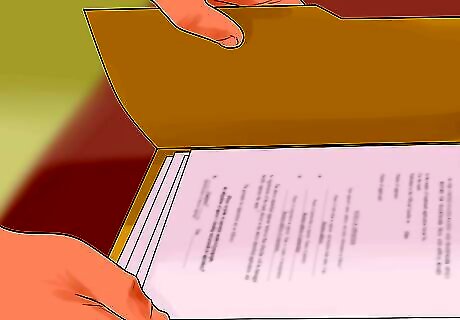
Gather information. Before you sit down to draft your complaint, take a minute to gather any documents or other information that are related to your claim, particularly any receipts or statements for expenses you've incurred as a result of your injuries or damage to your property. One of the main things you need is good identification information for the person or business you want to sue, as well as an address where they can be served with the final documents. Knowing the residence or primary place of business of your defendant is important for another reason. The court you use must have personal jurisdiction over them, and typically that is the court located in the county where the defendant is located, or in the county where the dispute or incident arose that gave rise to your lawsuit. If you want to seek compensatory damages, pull together all the documents you have that relate to any expenses you incurred as a result of the injury or property loss you sustained. Compensatory damages aren't limited solely to costs to replace or repair damaged property or doctor's bills for your injury. They also may include lost wages for shifts you missed at work, loss of earning capacity because you are disabled, and pain and suffering or other money designed to compensate you for having to go through the ordeal. Additionally, you may be entitled to additional compensation if you remain disabled as a result of the injury. Keep in mind that to prove you're entitled to this kind of compensation you will need doctors to serve as expert witnesses and testify regarding the impact of your disability on your life.
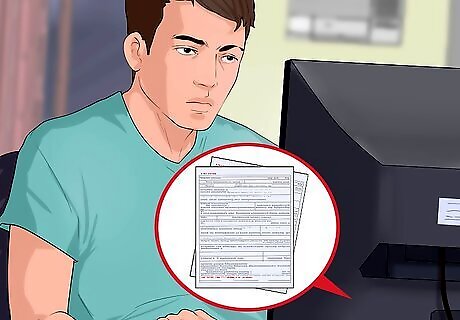
Search for forms or templates. If you're filing your lawsuit without an attorney to represent you, the court may have forms or templates you can use to draft your complaint and initiate your lawsuit. Small claims courts in particular are designed for people to represent themselves and always have a form for you to use. Most state courts have basic personal injury complaint templates available as well. Check the website of your state court to see if these documents are available to download online, or call the clerk's office. You also may be able to find forms and instructions at a local legal services office. Legal aid and volunteer lawyers' associations frequently offer assistance for self-represented litigants.
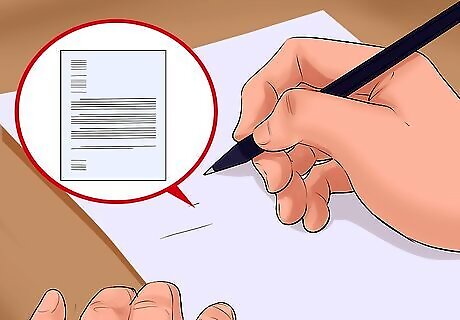
Format your documents. Your complaint and summons, as well as any other documents required by the court, generally must follow a specific format outlined in that court's rules. You also can get a sense of proper formatting by looking at complaints filed for other cases in the same court. Some courts have more particular formatting rules than others – but don't get too bogged down in the technical specifications. The court won't refuse your complaint even if the formatting rules aren't followed to the letter. Courts require other documents including a summons, which informs the defendant that they've been sued and provides details regarding how to respond to the lawsuit. These documents are the same for all civil cases, and the forms are available from the clerk's office and possibly can be downloaded from the court's website. If you are representing yourself, it's typically a good idea to call or visit the clerk's office of the court where you plan to file your lawsuit and find out exactly what forms are required to initiate a lawsuit. While the clerk cannot give you legal advice, they can help you with court procedures and document requirements.

List your allegations. Outside of small claims, a complaint typically lists factual allegations in numbered paragraphs, with each paragraph containing a single factual statement that you must prove to win your case. Typically your allegations identify you and the person you're suing, and then explain the dispute or incident that led to your injury or damage to your property. Your state's personal injury law provides the blueprint for the allegations you must make to state a claim for compensatory damages. Generally, you must allege that the defendant negligently breached a duty and you were injured or your property was damaged as a result. Keep in mind that if you fail to allege a required element of a negligence claim, the defendant may respond with a motion to dismiss because your complaint doesn't state a legal claim upon which the court can grant relief.
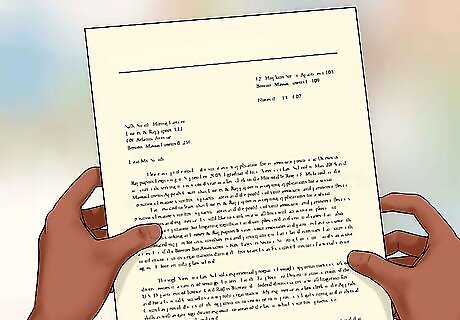
Include a demand for damages. All courts require you to specify the exact amount of money to which you believe you are entitled as a result of the injury or property loss you sustained. You will later have to prove this amount by providing receipts, billing statements, and other documents. Generally, you don't have to break down your demand for damages into amounts that are intended to cover various costs, or describe the expenses for which the total is meant to compensate you. However, you must list a specific amount of damages to which you believe you are entitled. This amount can include special damages, which are intended to compensate you for expenses you directly incurred, as well as general damages, which compensate you for non-monetary losses such as continuing disability, pain, and suffering.
Filing Your Complaint

Finalize your complaint. Once you've finished drafting your complaint, proofread it carefully for spelling and grammatical errors before you sign it. After you've signed it, you'll want to make at least one copy for your own records and one copy for every person you're suing. Some courts may require you to wait until you're in the clerk's office to sign your complaint in the clerk's presence, or to have your documents witnessed by a notary public. When you talk to the clerk before you file your paperwork, this is something to ask. Generally you want to sign and date your complaint and other documents on the day you will be taking them to court to file, regardless of whether you need to sign them before the clerk or a notary.

Take your complaint to the clerk's office. To initiate your lawsuit you must file your complaint, along with any other documents the court requires, with the clerk of the court that you want to hear your case. You may want to call the clerk's office beforehand or visit the court's website to make sure you have all your documents in order. You will have to pay a filing fee before the clerk will file your documents with the court – typically a few hundred dollars. If you can't afford the filing fees, ask the clerk for an application to have the fees waived. You must provide information about your income and assets, and if they fall below the court's established threshold you won't have to pay any court costs in the case. Once the fees are taken care of, the clerk will file-stamp your documents with the date and assign a case number. This number must appear on all documents filed with the court regarding your case. Depending on the court and its procedures, the clerk also may schedule an initial hearing or assign your case to a particular judge. The clerk will return your file-stamped copies so you can have one delivered to the person you're suing.
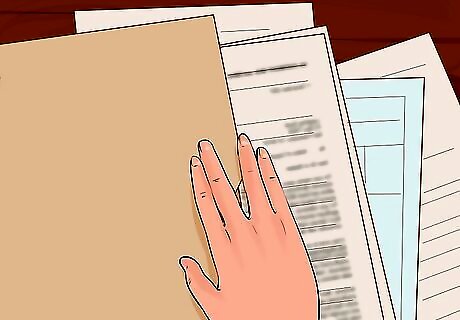
Have the defendant served. Once you've filed your lawsuit with the clerk, it's your responsibility to have someone over 18 who isn't involved in the lawsuit deliver the documents to the person you're suing – a legal formality known as "service." Technically you can have anyone serve the defendant as long as they are over the age of 18 and not involved in the case. However, litigants typically hire a sheriff's deputy or a private process serving company to complete service to ensure everything is done correctly. Most courts require personal service for the complaint. However, some courts allow you to use certified mail with returned receipt requested to send the documents to the defendant. Expect to pay a small fee to have service completed. Once the documents have been delivered, you must file a proof of service form with the court so the court knows the defendant has sufficient legal notice of the lawsuit.

Receive any response. When the defendant receives the complaint and summons, they have a brief period of time – typically a couple of weeks or more, but no longer than 30 days – to file a written answer or other response with the court. If the defendant does not respond to the lawsuit in any way and the deadline for a response lapses, you may be eligible to win your lawsuit for default. However, you still must prove that you are entitled to the amount of damages you've claimed. Typically you'll receive a written response – filed with the court and served on you in the same way you had the complaint served on the defendant – that responds directly to each of the allegations you listed in your complaint. In most cases the defendant will deny the bulk of your allegations. This doesn't necessarily mean the defendant is saying your allegations are untrue. Rather, the defendant is requiring you to meet your burden of proof regarding that allegation at trial.
Heading to Trial
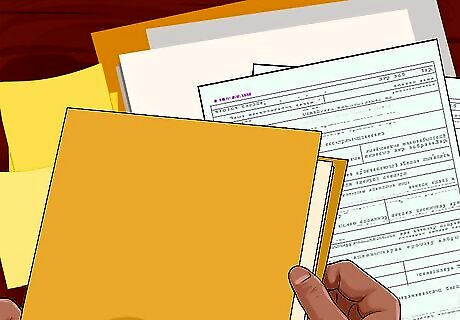
Participate in written discovery. If you've filed a civil suit in state or federal court, litigation proceeds to the discovery phase after the complaint and answer are filed. Written discovery consists of interrogatories and requests for production that enable both parties to exchange information related to the case. Interrogatories are written questions that must be answered in writing under oath and returned to the other party. Requests for production ask you to provide documents that could be used as evidence to support your allegations. If you're seeking compensatory damages, you likely will receive requests for copies of your medical bills or repair bills if you have a claim for property damage. The defendant also will want names of any witnesses you plan to call as well as the names and addresses of any doctors or health professionals who treated your injuries. If you also claimed monetary damages related to work, there likely will be questions about and requests for documents related to your employment and work history.

Conduct depositions. Another aspect of discovery is the deposition, which is a live interview of the parties or witnesses in your case. The interview takes place under oath in the presence of a court reporter, who later produces a transcript of the entire proceeding for future reference. In personal injury cases, you should expect that the doctors or health care professionals who treated your injuries probably will be deposed by the defendant and their attorney. The purpose of these depositions is to get the doctor on record regarding the seriousness of your injury and the extent of any remaining disability. You also can expect to be deposed yourself. If you are represented by an attorney, they will attend the deposition with you and probably meet with you at least once before the deposition is scheduled to go over questions you likely will be asked. You may plan to depose the defendant as well as any witnesses to the incident or dispute that caused your injuries.

Attempt mediation. Many courts require litigants to at least attempt to come to a settlement of the case through mediation before a trial will be set on the court's calendar. Mediation involves working with a neutral third party who facilitates negotiations between you and the defendant. Mediation is a voluntary process, which means you aren't required to come to any compromise or resolution. If you bargain to an impasse, the mediator will fill out a form for you and you'll be ready to prepare for trial. However, if you are able to arrive at a mutually agreeable settlement, the mediator will draw up a settlement agreement for you and the defendant to sign. Once you sign that agreement, your lawsuit will be over. The settlement agreement, once signed, will be legally binding and enforceable in a court of law.




















Comments
0 comment